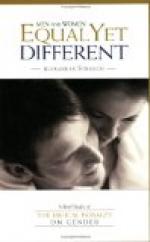Mrs. Wesley was distinguished, from childhood, for rare mental ability; and, even at so early an age as thirteen, had made theology a favorite study. Arrived at mature years, she made practical use of the knowledge so carefully acquired in youth, and manifested unusual judgment and skill in the early training and general management of her very large family. She did not confine herself to the management of her domestic concerns alone, as many good mothers would have done, though she carefully superintended them, but also overlooked the studies of her children; and it was really her thorough training, and her subsequent counsels to John and Charles while at Oxford, which produced in them the bent of mind that finally resulted in the great Methodist movement.
Accustomed all her life to read with care the productions of the most eminent writers of her own and preceding times, and to reflect upon what she read, she was able to arrive at correct conclusions concerning questions of importance, whether they related to private matters or to the public well-being. She had no more dread of Mrs. Grundy than her sons had. Once she knew she was right, “Society” might either blame or praise, as it saw fit; she remained firm in the carrying out of the measure—true to her principles.
When her sons, John and Charles, collected the common and poorer people about them, and began preaching to them in the open fields, there was a fearful outcry. Old-time customs had been innovated. Clergymen of the Church of England had departed from accustomed usage, and from field or horseblock had proclaimed a full and free salvation through Christ to the very vilest of the land, if they would but comply with the conditions laid down by him. The Profession were aggrieved at such irregular proceedings. “Society” was scandalized that outcasts were bidden to the same feast upon the same conditions with those reputed decent. Even Samuel Wesley felt called upon to rebuke his brothers sharply for the reproach he considered they had brought upon the Church by their “intemperate zeal,” But where was their mother meanwhile—she whose counsels experience had proved it best to follow? Examining the Scriptures, and the history of the primitive Church, to see wherein her sons had gone astray, that she might be in a position to convince them of their error, if she found them to be in it. Careful study, however, convinced her that they were only practicing the course followed by Christ and his apostles; and her determination was taken. She would not only encourage them by her letters, but sustain them and sanction their course by her presence. Accordingly, she went with her son John to Kensington Common, and stood by him while he preached to a congregation of about “twenty thousand people.”
It was Mrs. Wesley who counseled John to ponder well what he did before he forbade laymen to address congregations; and her arguments on this point were so conclusive that they led him to alter his mind and make use of them as an agency for good in the Church, though previously he had considered such a proceeding a dangerous innovation.




